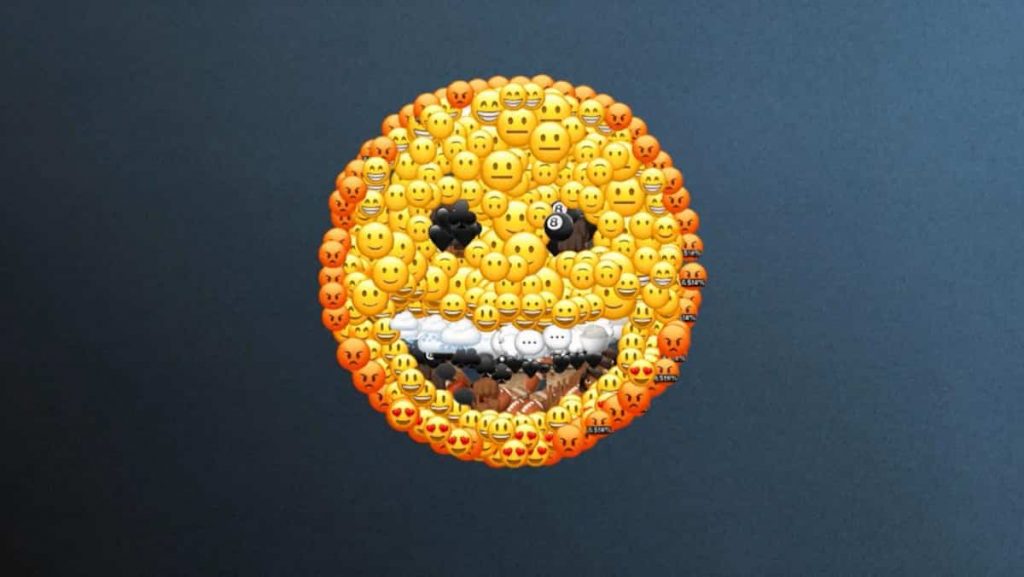They are an integral part of our communications. These delightful and seemingly harmless designs broadcast our written conversations, but they can also affect human relationships by causing confusion when misinterpreted…another symbol of the domination of the web giants over our lives. Light on emojis!
Journalist and director Stephanie Capri presents her documentary “Emoji-Nation” as a “hilarious and offbeat investigation.” Three years ago, realizing that Japanese emojis were about to celebrate two decades of their existence, she wanted to go see what was happening “behind the screen.”

Image Courtesy/Radio Canada
The numbers given by the filmmaker in an interview are enough to make your head spin: Only on Facebook, five billion emojis are exchanged daily via Messenger, and more than 60 million on the public platform.
Emojis were first bred in Japan in the late 1990s, but in Western countries they have only been used for about ten years. Those in 1999, among others created by Japanese Shigetaka Kurita, were very different from those in use today.
“It’s a global phenomenon that only the Internet can build,” explains Stephanie Capri. I wanted to understand how they became famous and who controls this “galaxy”. Through this exploration I wanted to show that emoji, in our highly interconnected lives, are perhaps not as naive and innocuous as they seem. They give a glimpse into a more complex world, completely revealing today’s web, a finite and increasingly controlled web.”

Image Courtesy/Radio Canada
Because behind hearts and other yellow faces with outstretched tongues (there are a total of 3521) stands a whole world. Ignoring the phenomenon, Stéphanie Cabre notes all the questions it hides, about society, diversity, language, the control of the Internet by digital multinationals (the famous GAFAM, Google, Apple, Facebook, Amazon, Microsoft) …
We are particularly aware in the three approximately twenty-minute capsules of “Emoji-Nation” that the Unicode Consortium, an American non-profit organization responsible for validating and encoding emojis, is made up of several members primarily from the web. giants. Thus, super powerful private corporations insidiously influence our language, which can thus become an instrument of cultural domination.

Image Courtesy/Radio Canada
“Anyone with ideas for emojis can come up with them, you and me, and the whole world, but in the end we realize that the ultimate decision is the members of the Unicode Consortium who will choose whether or not an emoji will pass.”
Stephanie Capri cites as an example the proposal recently adopted by the National Assembly, based on a proposal by the Parliamentary leader of the Party of Quebec, Pascal Biroubi, requesting that a Quebec flag emoji be added to the already existing bank of 250 flags approved by the Unicode Alliance.
“Not all concepts are represented on a keyboard, and that is a question we can ask ourselves, Slip Stephanie Capri. I would like people, who are watching this documentary, to meditate and tell themselves that behind these hilarious, playful, intergenerational little drawings, there is a great power, which is Not trivial.”
The three-part documentary series “Emoji-Nation”, a co-production between ARTE France and Urbania, is now available on ICI Tou.tv.

“Hardcore beer fanatic. Falls down a lot. Professional coffee fan. Music ninja.”






More Stories
SALES / PHOTO SALES – Nikon D850 “5 Star” Bare Body Photo Body at €2,539.00
Discovering a new turning point under the Antarctic ice sheet! What are the consequences?
Record number for an insect!